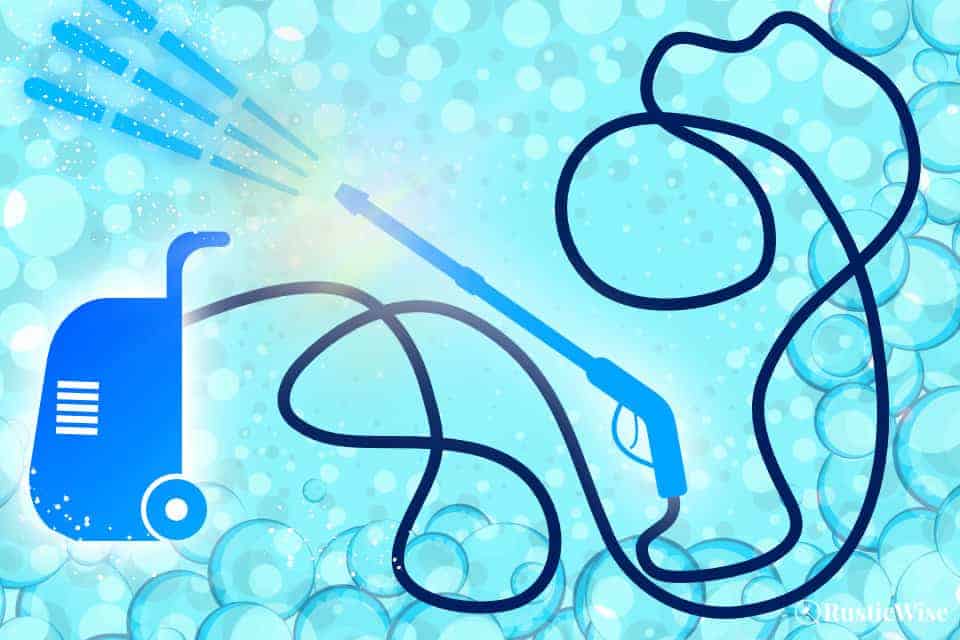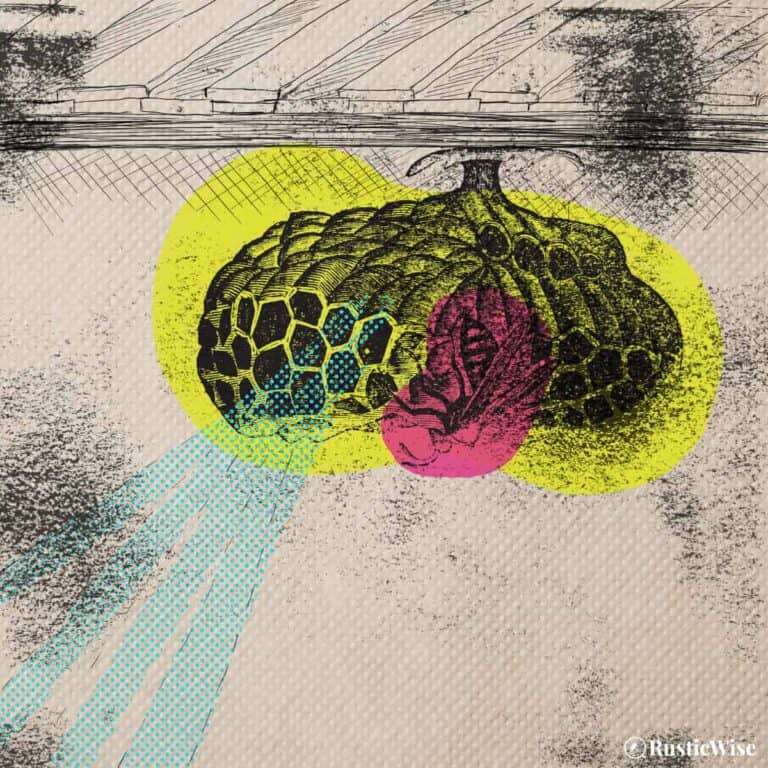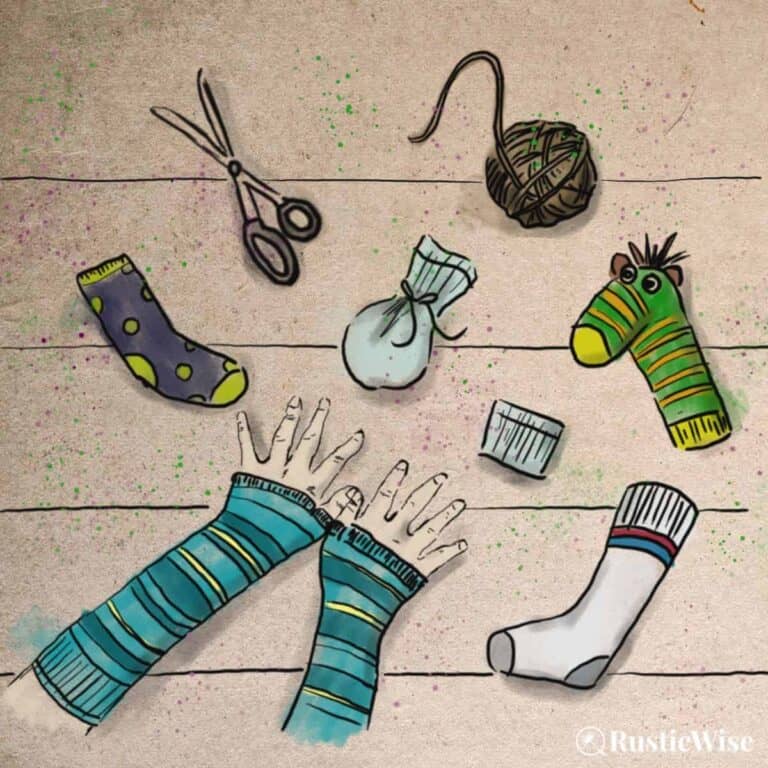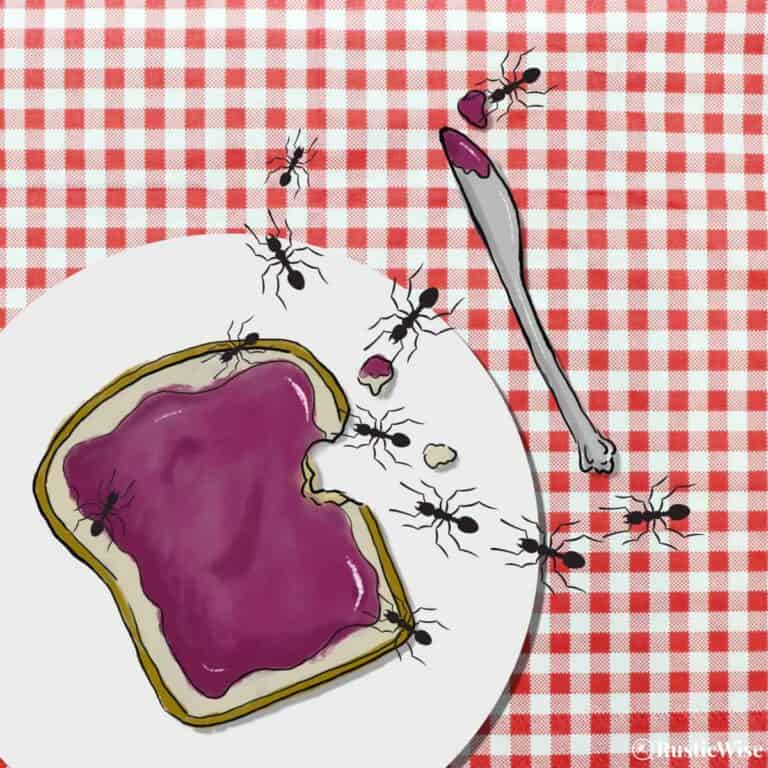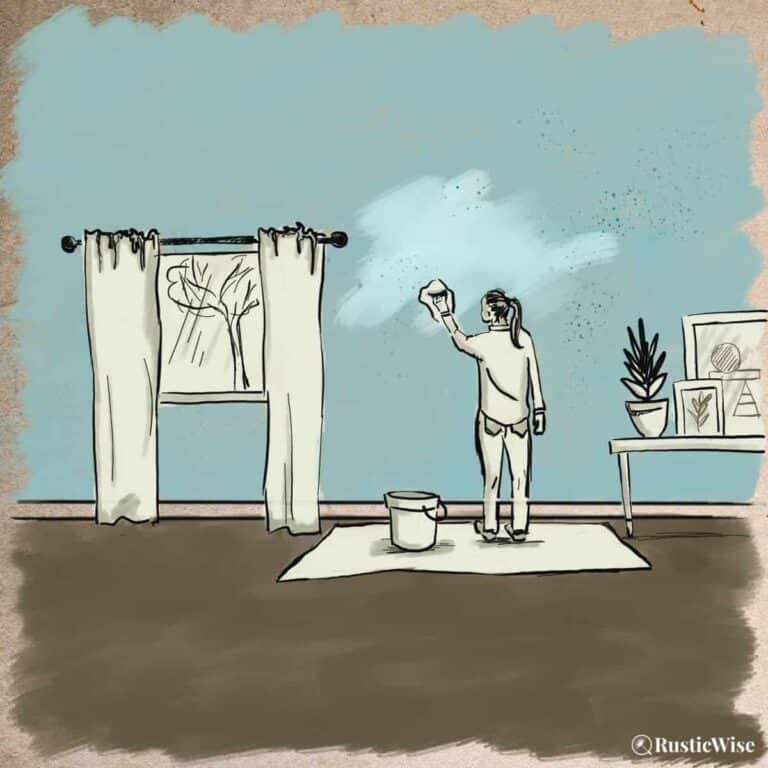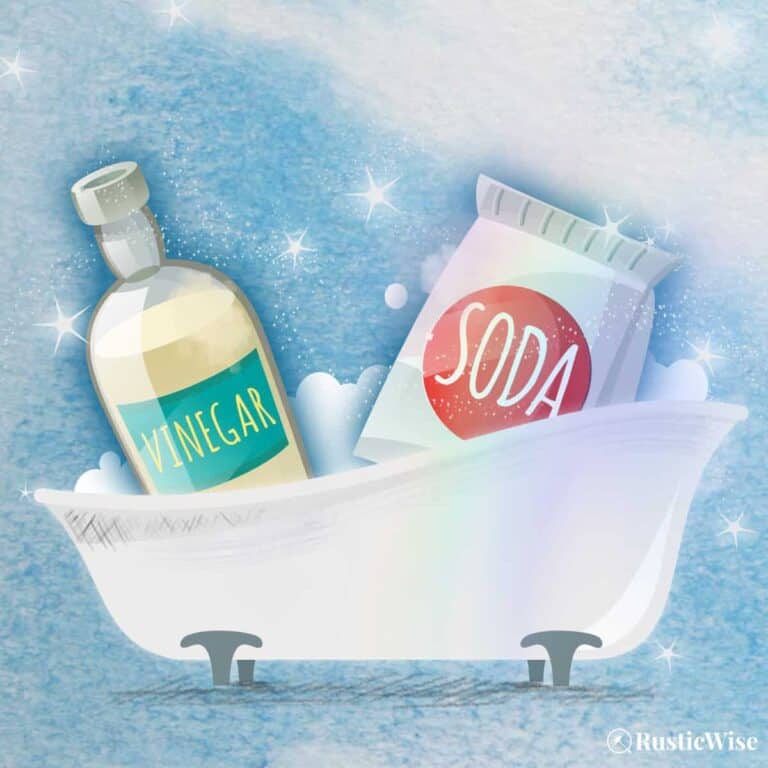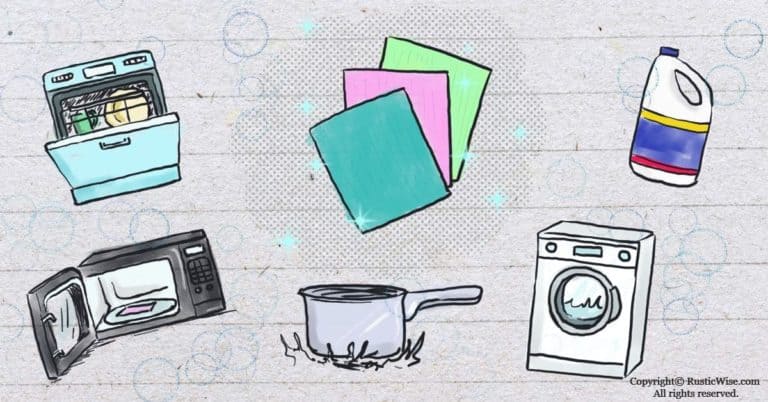Be Wary of DIY Pressure Washer Soap Recipes (Plus 2 That Work)
I’m all for homemade solutions when possible. This goes for DIY all-purpose cleaners to fixing your own leaky toilet. If you’re itching to break out your pressure washer, and are looking for a homemade pressure washer soap, you’ve probably encountered a few.
After doing my own search online, I’ve encountered many DIY pressure washer soap recipes that were questionable to (potentially) downright unsafe. It’s important to know that some cleaners should NOT be mixed (such as bleach and ammonia products), and the real risk of damaging your equipment.
Let’s explore a few key points to consider before making a homemade pressure washer detergent. Plus, I’ll share two recipes that actually work.
Notes of caution when making your own DIY pressure washer soap
Before you go all-in on making a big batch of pressure washing soap, you should know the risks.
- You may ruin your machine: Any cleaning mixture that you make yourself, or that wasn’t intended for use in this type of equipment might destroy your washer.
- Void warranty: Some pressure washer warranties don’t cover the use of non-approved cleaning fluids. You may find yourself with a broken machine that’s no longer covered by warranty.
- Beware of mixing ingredients: Some online recipes call for the mixing of ingredients or different household cleaners. Some substances, such as bleach and ammonia, are dangerous when combined. (More on this below!)
- May not be as effective: Special pressure washer detergent was designed for use under high-pressure machinery. Many DIY soaps may not be as powerful, meaning you’ll need to use a bit of elbow grease!
- The type of machinery can make a difference: Do you have an upstream or downstream injector? If you have an upstream injector, there’s a higher risk of damage from the type of liquid soap you use.
Upstream vs. downstream injector
How do you know if you have an upstream vs. downstream injector? The best way is to look at the user’s manual or look up your model number online.
An upstream injector runs cleaning fluids throughout the entire pump, increasing the risk of damage.
A downstream injector allows you to add the cleaning fluid to the detergent tank after it has passed the pump. This type of machine poses less risk of damage as it preserves the pump from chemicals. But there’s still a potential for wreckage.
Can you put dish soap in a pressure washer?
One of the first cleaning solutions most people think of using as an alternative pressure detergent is plain old liquid dish soap, such as Dawn.
First things first, technically you can put a small amount of liquid dishwashing soap, but it’s not recommended long term for a few reasons.
First, detergents designed for high pressure settings were formulated to pass easily through components. Dish detergent is not. You may find yourself with a clogged machine.
Dish soaps may also leave a cloudy residue or soap scum, depending on the surface you’re cleaning.
Plus, it’s simply not as effective for heavily soiled surfaces or rust stains.
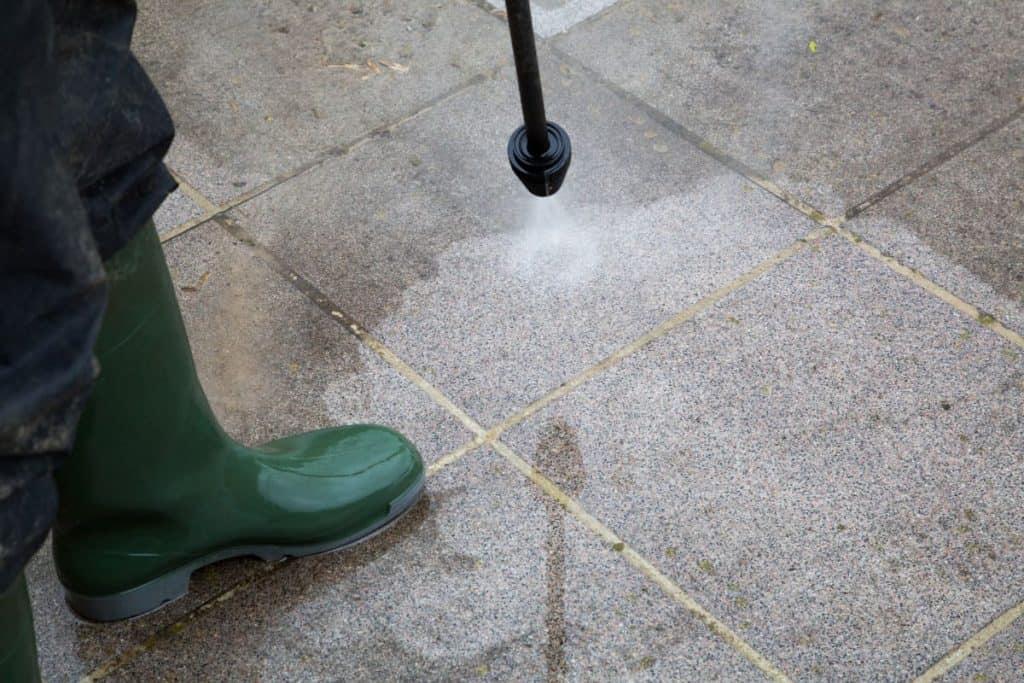
Beware of mixing cleaning ingredients
So you want to make a DIY pressure washer soap? Whether your reasons are to save money or cut back on harsh chemicals used, everyone should know a few safety tips before mixing ingredients.
Do NOT mix the following common household cleaning agents:
- Chlorine bleach and ammonia: Mixing these two ingredients creates chloramine, a toxic gas which causes difficulty breathing and chest pains.
- Chlorine bleach and vinegar: This creates chlorine gas. This toxic substance may burn or irritate eyes and cause respiratory problems.
One recipe I stumbled across online raised a few red flags. The following recipe calls for mixing household cleaners (which may include bleach or ammonia) together with vinegar, something you DON’T want to do.
The recipe calls for:
- 1 gallon of water
- ⅓ cup powdered phosphate-free washing detergent
- ⅓ cup of household cleaner
- 1 cup vinegar
But what exactly is washing detergent? Is that from a dishwasher, or is it laundry detergent? Many laundry powders may contain bleach.
What about household cleaner? Many household window cleaners such as Windex contain ammonia. Same goes for all-purpose cleaners, toilet bowl cleaners, and the list goes on.
And mixing bleach and ammonia is a definite no-no. When these two ingredients are combined, they create a toxic gas. Mixing bleach with vinegar is also dangerous.
The takeaway: Use caution and common sense when using any DIY recipes for soaps and detergents. Avoid those that call for the mixing of dangerous chemicals.
2 DIY pressure washer soap recipes that work
If you’re still determined to make your own homemade soap solution, here are a couple to try out.
Homemade concrete cleaner detergent
This DIY pressure washer detergent recipe calls for water, borax, washing soda, and a drop of liquid dish soap. It’s an alkaline cleaner that combats concrete grime, dirt, and many types of stains, including mildew stains.
Many concrete surfaces respond better to alkaline (basic) cleaners rather than acidic ones. Looking to remove a tough stain such as oil or grease? A strong alkaline cleaner is great for removing heavy dirt buildup.
- Borax (sodium borate): A medium-strength alkaline powder. It’s often used to launder clothes and works as a water softener and prevents soap buildup from hard water.
- Washing soda (sodium carbonate): Don’t confuse this with baking soda (sodium bicarbonate). Washing soda is a strong alkali (while baking soda is milder). It’s a natural mineral mined from the earth. Washing soda works as a heavy duty cleaner to remove heavily soiled deposits.
Tip: Washing soda may irritate eyes and skin. Wear the proper safety equipment, such as safety glasses and gloves.
Ingredients:
- 1 gallon of warm water
- ½ cup borax
- ½ cup washing soda
- 1 tablespoon liquid dish soap
- In a large clean bucket, fill with 1 gallon of warm water and add liquid dish soap.
- Slowly dissolve borax and washing soda in the warm water.
DIY pressure washer soap for stainless steel or metal
Stainless steel and metals are prone to hard water mineral buildup, rust, and sometimes sticky grime.
This recipe calls for a mild acidic cleaner: white distilled vinegar. Mild acids like vinegar are used to cut through grease, remove scaling, rust, and more.
Tip: Most bottles of white vinegar you find at the grocery store contain 5 percent acetic acid, which provides a bit of cleaning power. For a slightly stronger solution, you can use pickling vinegar, which contains slightly more acetic acid.
Ingredients:
- 1 gallon of warm water
- 1 to 2 cups of white vinegar
Combine water and vinegar. Stir to mix.
Do you really need to use a pressure washer?
I get it. It’s fun to use a high-pressure water stream to blast away dirt and debris.
But sometimes using one can damage certain types of surfaces. And sometimes using plain water along with a pre-treatment with mild soap and a scrubbing brush will do just fine.
Here are a range of surfaces that you should think twice about before breaking out the high-powered jets.¹
- Roof: Unless you want loose shingles, using a pressure wash on your roof is NOT recommended. Besides, using a high-powered spray may cause you to topple over.
- Vehicles: Power washing may damage your paint job and leave metal exposed. An old-fashioned bucket of car wash soap, water, and a soft sponge or cloth works wonders.
- Old or fragile surfaces: Anything vintage or on its last legs needs a light hand and low pressure. Painted wood surfaces may suffer under a blast of hot water.
- Some wood decks: Looking for a deck cleaner? Pressure washing composite decks and pressure-treated wooden decks is generally fine. Some stained wood decks would be better off without this high-powered spray. Check your owner’s manual first before proceeding.
- Some vinyl exterior surfaces: The Vinyl Siding Institute (VSI) recommends you check your manufacturer’s instructions before using a high-powered wash. Some types of vinyl can’t withstand the watery blast. Others have specifications on the amount of pressure to use, along with specific siding cleaner.² VSI suggests using a “soft cloth or ordinary long-handled, soft bristle brush” to clean vinyl siding.
Final washing tips
If you decide you want to go for a commercial detergent and want the best bang-for-your-buck, opt for concentrated solutions rather than ready to use, or pre-mixed cleaners. While you’ll need to mix the solution yourself, this is more economical and you’ll get more washes out of it.
And, if you’re hoping to find a cleaner with fewer harsh chemicals, look for the EPA Safer Choice label.
Remember to rinse well! Whatever cleaning solution you decide to go with, whether it’s a homemade pressure washer detergent or a store-bought one, make sure
Related questions
What’s the difference between a power washer and a pressure washer?
The main difference between a power washer vs. a pressure washer is that the former uses heated water, while the latter does not. The hot water from a power washer can be helpful sometimes, but the higher temperature can also damage certain surfaces.
Do a power wash only on heavily soiled and sturdy surfaces.
Is bleach safe to use in a pressure washer?
Many commercial cleaners list bleach as one of the ingredients. However, you should avoid pouring undiluted bleach into your cleaner. Bleach is a powerful corrosive agent that can eat away at delicate plastic or rubber components such as seals, hoses, rings, and pumps.
Do you always need to use soap in a pressure washer?
No, sometimes a simple, powerful spray of water will do just fine, no soap required. It really depends on the type of surface you’re cleaning and the types of stains you’re dealing with. Tougher stains may require a cleaning solution or a pre-scrub treatment.
👉 If you like this post, see other Timeless Cleaning Tips You Need To Know. 🌟
Would you like more timeless tips via email?
Fun tips to help you live an independent, self-sustaining lifestyle. Opt-out at any time.


References
- Hope, Paul (18 April 2018). “Can This Surface Be Pressure-Washed?” Consumer Reports. Accessed November 2023.
- Vinyl Siding Institute (VSI), Vinyl Siding Cleaning and Maintenance Tips, https://www.vinylsiding.org/why-vinyl/cleaning-and-maintenance/. Accessed November 2023.

Author: Josh Tesolin
Josh is co-founder of RusticWise. When he’s not tinkering in the garden, or fixing something around the house, you can find him working on a vast array of random side projects.

